Keerti Melkote On The Aruba Team’s ‘Blood, Sweat and Tears’ And His Future Plans: Exclusive
With the news that Aruba Networks founder Keerti Melkote is leaving the company, the tech visionary shares with CRN why now was the time to leave and describes how Aruba’s portfolio is ‘on fire.’ He also tells CRN that HPE CEO Antonio Neri has been and will continue to be Aruba’s ‘biggest cheerleader.’
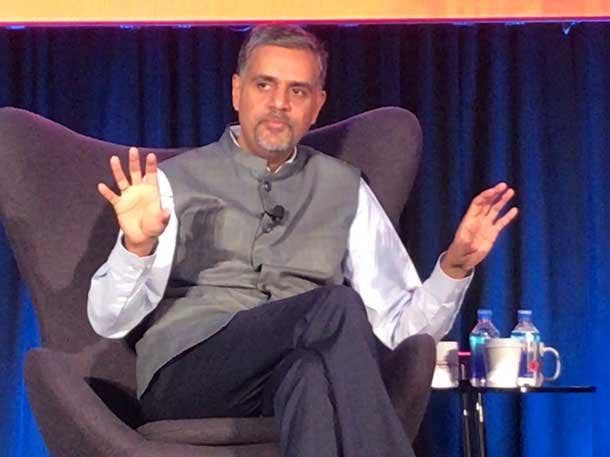
Melkote Signing Off
Keerti Melkote, who has been at the helm of Aruba Networks for nearly two decades as the company’s founder and president, revealed this week that he was leaving the company. The networking giant, under the direction of Melkote, has spent the past 19 years giving competitors a run for their money with its innovative Wi-Fi and intelligent edge solutions. Melkote said that if there was ever a time to consider leaving, it would be now, considering the company’s strength in the market and impressive growth it’s seen recently, despite a global pandemic that stressed the IT industry and enterprise buying trends.
Six years ago, HPE bought Aruba Networks for $2.7 billion, but the wireless specialist stayed true to its roots, giving HPE cloud-first Wi-Fi and edge services offerings built on a solid as-a-service platform. Tech entrepreneur Melkote, according to HPE President and CEO Antonio Neri, has been instrumental in building a $3 billion HPE Aruba business that is pulling in double-digit growth year over year for its parent company. And Melkote said that Neri “kept up his end of the bargain” in supporting—not stifling—Aruba’s growth.
Melkote is being replaced by HPE Senior Vice President of the Communications Group Phil Mottram, a 30-year telecommunications veteran. Alongside Melkote, the leader’s longtime lieutenants, Aruba CTO Partha Narasimhan and Pradeep Iyer, Aruba’s chief architect, also left the company. Silver Peak founder and former CEO David Hughes, who joined the company after Aruba acquired the SD-WAN specialist in 2020, is taking over as Aruba’s chief product officer and CTO.
Melkote spoke with CRN following the news to talk about why now was the time to leave his brainchild, his expectations for Aruba’s future strategy and why the portfolio is “on fire.” He also told CRN why he’s so confident that Aruba’s cherished channel community will have everything they need to continue the growing momentum around edge, SASE and next-generation connectivity solutions and shared that while the last few days have been an emotional time, customers and partners are in great hands.
Here’s what Melkote had to say.
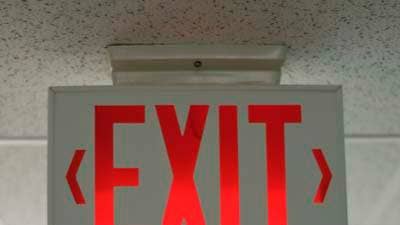
Why was now the time to leave Aruba Networks?
For me, I always want to see Aruba grow, thrive and do really well. There’s never a good time to say goodbye to the company you created. But if there’s ever a time to leave, it’s when [business] is up and to the right. Not only Aruba, but the whole world has gone through the pandemic and as we come back out of the pandemic, business is looking up. In Q1, we did double-digit growth and in Q2, we had 20 percent growth year over year and it only will accelerate from here. The momentum in the business is phenomenal, and I just want to keep that momentum going. The best time to bring in top talent is when things are going really well. So I thought if there ever was a time I’d want to consider [leaving], this is the best time. If there was something wrong with the business, I would never be leaving.
And the other reason as to why now was the Aruba leadership team. My direct staff is very, very strong. The team does an exceptional job and they’re very loved by our customers, partners and employees. I have a lot of confidence in them to keep the momentum going. And now with Phil [Mottram] joining as the head of Aruba and David Hughes taking over as CTO, it will be new leadership for the company but in many ways, the core of who we are is going to continue because that’s ultimately why we are who we are and where we fit in the market. The customer-first, customer-last mantra, that small-company approach and keeping partners at the heart of everything we do—we’ve become more than a company, we’ve become a family. The good news is we know no other way. That is the only way we can keep going as long as the culture stays alive, and I’m very confident that will happen.

What will you be doing next?
Twenty years was a long time running a company, and it was a significant part of my life. I’ve always put my family second and Aruba first—which is also my family—in many ways, whether it’s traveling for customers or doing whatever. I just wanted to take some time putting personal family first and that requires me to kind of take a step back.
I’m not going away. I’m going to be an adviser to Antonio and Phil and to the leadership team, but it was time for me to turn the reins over to some fresh energy and talent to take [the company] forward.
Do you have future plans to look at new areas of opportunity or technology with your two longtime partners, Partha Narasimhan and Pradeep Iyer, who also left Aruba?
Not right now. We are all in the same boat. We’ve given our blood, sweat and tears to grow the company for 20 years and we’re all basically going back to our personal families to spend some time to relax with them. Each one of us have planned summer breaks. Aruba will always be in our hearts and we’ll continue to support them, but maybe we’ll resurface sometime next year and think about what to do next, but not right now. Right now, it’s just [about] helping with the transition to keep the momentum going with Aruba, and to take a backseat.
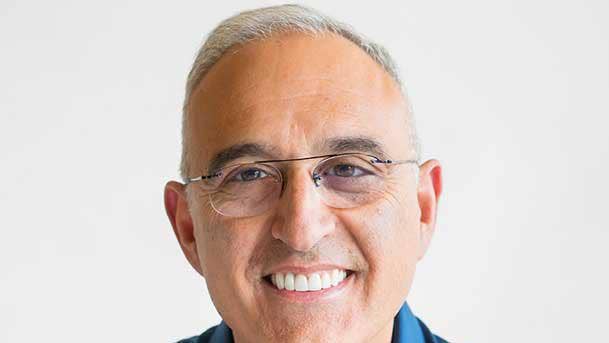
Neri (pictured) said there will be no changes to the Aruba business following your departure. What do you want partners to know about the leadership shift?
Don’t be nervous. There’s nothing to be nervous about. Aruba is the same—[Neri] has made the promise that we’ll keep the culture, the brand and the programs the same. This is the only way we know and the way we are as an organization. For [partners], they deal individually with various Aruba personnel out in the field and those things are not going to change. I think that was my peace in making this decision—the culture is so strong that it will persist.
That’s why past partners like who we are and like to do business with us. That’s why we like to do business with them. I think we built a very strong, co-dependent bond with each other and all our business goes through partners, so I don’t think that’s going to change in that regard at all. I think we will continue innovating with customers first in mind, and we’ll do it with partners at the heart of the program. So, no changes. Keep going. More importantly, the business momentum is phenomenal. The shift toward the edge is real and [Aruba] ESP [Edge Services Platform] is being very well received, so is Silver Peak and Wi-Fi 6. Across the board, the portfolio is on fire. Partners can really take advantage and benefit from that from a long-term perspective, and they can build franchises around ESP. HPE, by the way, our parent company, is also a channel-first company, so from that perspective, the culture is not just Aruba’s, it’s HPE’s too.
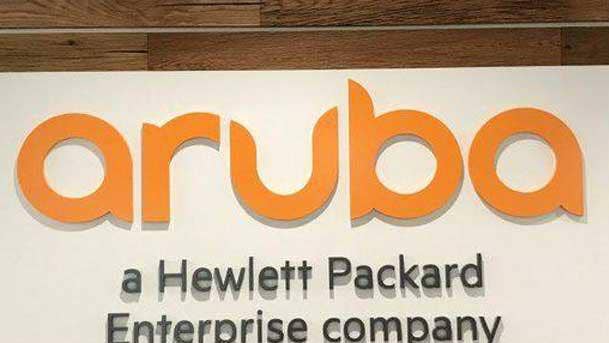
What’s your future vision for the ESP platform being a backbone to HPE's as-a-service strategy?
We started out developing [the Aruba ESP] platform and it obviously became the cloud back end to help customers on-board themselves and operate their environments from this back end. It has since scaled to tens of millions of active users on the platform every day, and hundreds of millions of devices, so it’s become a true cloud-scale architecture with petabytes of data flowing into it every day. So, when HPE started to think about transforming to an as-a-service vision, they needed a cloud back end. Instead of reinventing the wheel and building yet another thing, [HPE] realized they had it already so they should just get up and go—those were the words that [Neri] said—’just get up and go.’ So, we basically stretched the platform to accommodate, effectively, the needs of the storage view, which [HPE] announced their version of their storage console and data services console in April. You’ll see the same thing happen with compute, and eventually any HPE platform that can be delivered as a service and managed from the cloud will use the ESP platform.
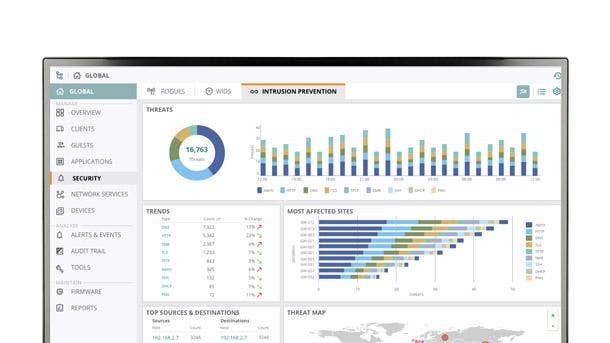
What’s the road map look like for Aruba partners, and do you see anything changing in the foreseeable future?
Aruba ESP we just launched this last year and these kinds of architectures tend to have a lifespan of five to seven years, so we are in the early innings. I think the edge is going to be more than five to seven years; I think it’s more like 10 years. So you will see more services being deployed on top of ESP. Security is one piece of it, and we talked a lot about SASE, so with [Hughes] taking over as CTO, he’ll continue to drive the development of that solution. Beyond security, I think, obviously, edge storage will be pretty significant. I just see the platform filling itself over the next 16 to 24 months. So definitely, from a partner perspective, if they are positioning ESP for customers, it has legs. Long legs.
Usually, founders stay on for a couple of years [post-acquisition], but [Neri] even said that [HPE’s acquisition of Aruba] was a reverse acquisition. He said: “You’re acquiring HP switching, yet HPE on paper is acquiring Aruba.” The real organizational acquisition was bringing switching into Aruba, so when he said that, it was really incumbent upon us to keep that Aruba flag flying since it wasn’t a traditional integration. And [Neri] kept up his end of the bargain, supporting us and doing everything he does to keep it going. I think he’s been our greatest cheerleader, greatest champion—as long as he’s at the helm, partners can have a sense of comfort that Aruba will stay true to its roots.
How will Mottram’s experience in telecom help shape Aruba’s future?
I think the two new leaders will be certainly bringing their unique expertise in those areas, and with [Mottram] coming from the telecom and 5G side, I think is an important piece to the overall vision of ESP—it was always part of the vision. So he brings some unique insight on how to integrate 5G with Wi-Fi.
I think when it comes to switching and Wi-Fi, we have all the world’s experts here and we’ve been doing it a long time. We have about 7,000 people behind [the leadership team] that are actually doing the day- to-day and what it takes to get it done. So, I have a lot of faith in them to continue developing what I consider the world’s best enterprise Wi-Fi and networking solution.
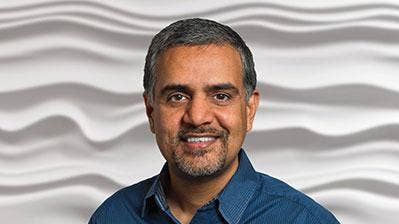
How do you feel as you leave Aruba to start the next chapter?
It is emotional, you know? Because ultimately, the whole journey is about relationships and people. Aruba on paper—it’s an abstract entity, so when people wonder what is Aruba? It’s a piece of paper incorporated. The real Aruba is the experiences and the people that make the company what it is in the community that we’ve built with it. That to me is the most fulfilling part of this journey—that depth of relationships and that genuine human regard we have for each other and the fact that everybody has each other’s backs—that’s what a community is about. Whether it’s a customer, partner or Aruba employee, it’s been incredible to see the notes I have received in last two days. On the one hand, [I have a] deep sense of gratitude for them for allowing and enabling this journey to actually happen. And beyond the cooperation and the technology and everything else, it is that culture we have built that people have said permits them to stay productive. And so, I think that’s why I feel confident moving forward.
It’s an emotional moment for me for sure. My wife was with me saying goodbye to Arubans today. It was a journey we started many years ago. My baby was four months old, and I told [my wife] I would not have a paycheck for 10 months. And she said: ’That’s fine. Go for it. We’ll figure it out.’ And it turned out to be 20-year journey from there. Obviously, there’s a lot of emotions tied up and it’ll take me time to process to be honest with you in the moment right now, but I have deep gratitude for everyone, especially our partners.